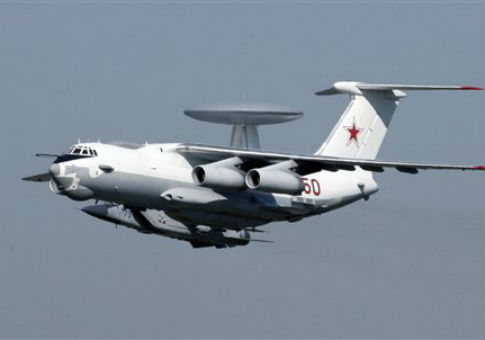Russia said on Monday it was formally asking to conduct flights over the United States using surveillance planes with advanced digital cameras, according to reports.
Russia is making the request under the terms of the 1992 Open Skies Treaty, which allows for unarmed aerial observation flights over signatory nations as a confidence-building measure and to monitor arms control treaties. Signatories to the treaty include the United States, Russia, and 32 other nations.
The formal request by Russia will be submitted to the Open Skies Consultative Committee in Vienna. The treaty requires nations to give notice of their intentions 120 days in advance of new flights. Signatories have the right of refuse another nation’s request for overflights. The treaty also calls for all signatory nations to receive photography that is collected from overflights.
The number of flights permitted over a nation annually is derived from the nation’s size. Due to their large size, Russia and the United States could be asked to allow up to 42 overflights.
Russia’s adherence to the treaty has been selective. While the treaty calls for signatories to allow flights over their entire territory, Russia has chosen to carve out a series of no-fly areas, including over Moscow, Chechnya, South Ossetia, Abkhazia, and disputed areas along the Russia-Georgia border.
Russia’s request comes against a backdrop of rising tensions between it and the United States and other NATO members, the result of Russia’s 2014 annexation of Crimea, its 2015 deployment of military forces to Syria, and aggressive actions by Russian aircraft and submarines near NATO member airspace and coastlines.
There would be precedent if the Obama administration decided to turn down Russia’s request: Russia turned down an April 2014 request by the United States for a flight over western Russia as the Ukraine crisis was coming to a boil.
The State Department, led by Rose Gottemoeller, an arms control official and long-time advocate of close U.S.-Russia ties, argued during December 2015 testimony to Congress that the treaty remains relevant and worthwhile.
Senior officials in the Department of Defense and intelligence community take a more skeptical view.
"The Treaty has become a critical component of Russia’s intelligence collection capability against the United States," Adm. Cecil Haney wrote to Rep. Mike Rogers (R., Ala.) earlier this year. "In addition to overflying military installations, Russian Open Skies flights can overfly and collect on Department of Defense and national security facilities, or national critical infrastructure."
